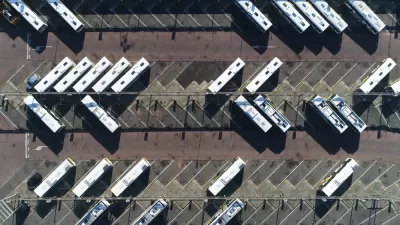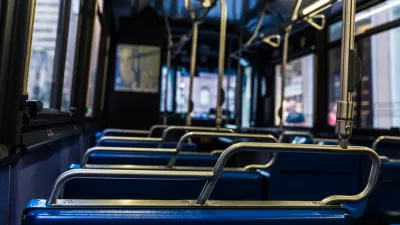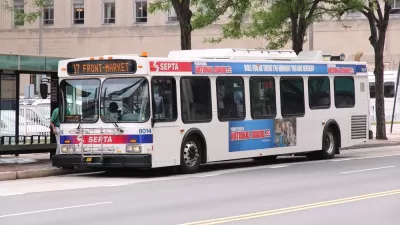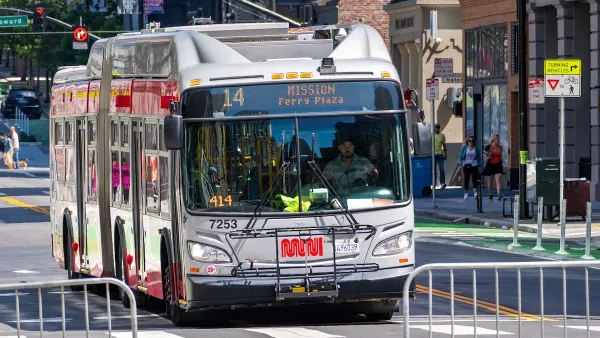Transit providers around the country are scrambling to find new sources of revenue to replace lagging ridership and reorienting their systems to a future less dependent on daily commuters.

According to an S&P Global Ratings report, which this month downgraded the public transit sector from stable to negative, “Some public transit operators face an operating fund fiscal cliff — especially if they are unable to identify new revenue sources or right-size operations reflecting lower expected ridership levels — once the federal assistance aid now compensating for diminished passenger fare revenues is depleted.” Dan Zukowski highlights the crisis in Smart Cities Dive, as major systems across the country struggle to find sources of funding as ridership remains low, particularly in cities with high rates of remote work. Meanwhile, other issues plague transit systems:
“Labor shortages are reflected in the signing bonuses they offer bus operators. Many agencies are looking toward major investments to electrify their bus fleets. And new approaches to better serve their communities have some agencies redesigning bus networks and trying alternative fare strategies, including fare capping, discounted fares and eliminating fares.”
Zukowski points to zero fare transit programs that have successfully boosted ridership in their cities, noting that free fares can reduce agencies’ operational costs by eliminating the need for collection mechanisms and enforcement. Ultimately, finding revenue sources other than fares, such as congestion pricing programs, might be essential to the survival and effective operations of U.S. transit agencies.
FULL STORY: To close budget gaps, transit agencies face hard decisions in 2023

Planetizen Federal Action Tracker
A weekly monitor of how Trump’s orders and actions are impacting planners and planning in America.

Maui's Vacation Rental Debate Turns Ugly
Verbal attacks, misinformation campaigns and fistfights plague a high-stakes debate to convert thousands of vacation rentals into long-term housing.

San Francisco Suspends Traffic Calming Amidst Record Deaths
Citing “a challenging fiscal landscape,” the city will cease the program on the heels of 42 traffic deaths, including 24 pedestrians.

Amtrak Rolls Out New Orleans to Alabama “Mardi Gras” Train
The new service will operate morning and evening departures between Mobile and New Orleans.

The Subversive Car-Free Guide to Trump's Great American Road Trip
Car-free ways to access Chicagoland’s best tourist attractions.

San Antonio and Austin are Fusing Into one Massive Megaregion
The region spanning the two central Texas cities is growing fast, posing challenges for local infrastructure and water supplies.
Urban Design for Planners 1: Software Tools
This six-course series explores essential urban design concepts using open source software and equips planners with the tools they need to participate fully in the urban design process.
Planning for Universal Design
Learn the tools for implementing Universal Design in planning regulations.
Heyer Gruel & Associates PA
JM Goldson LLC
Custer County Colorado
City of Camden Redevelopment Agency
City of Astoria
Transportation Research & Education Center (TREC) at Portland State University
Jefferson Parish Government
Camden Redevelopment Agency
City of Claremont





























